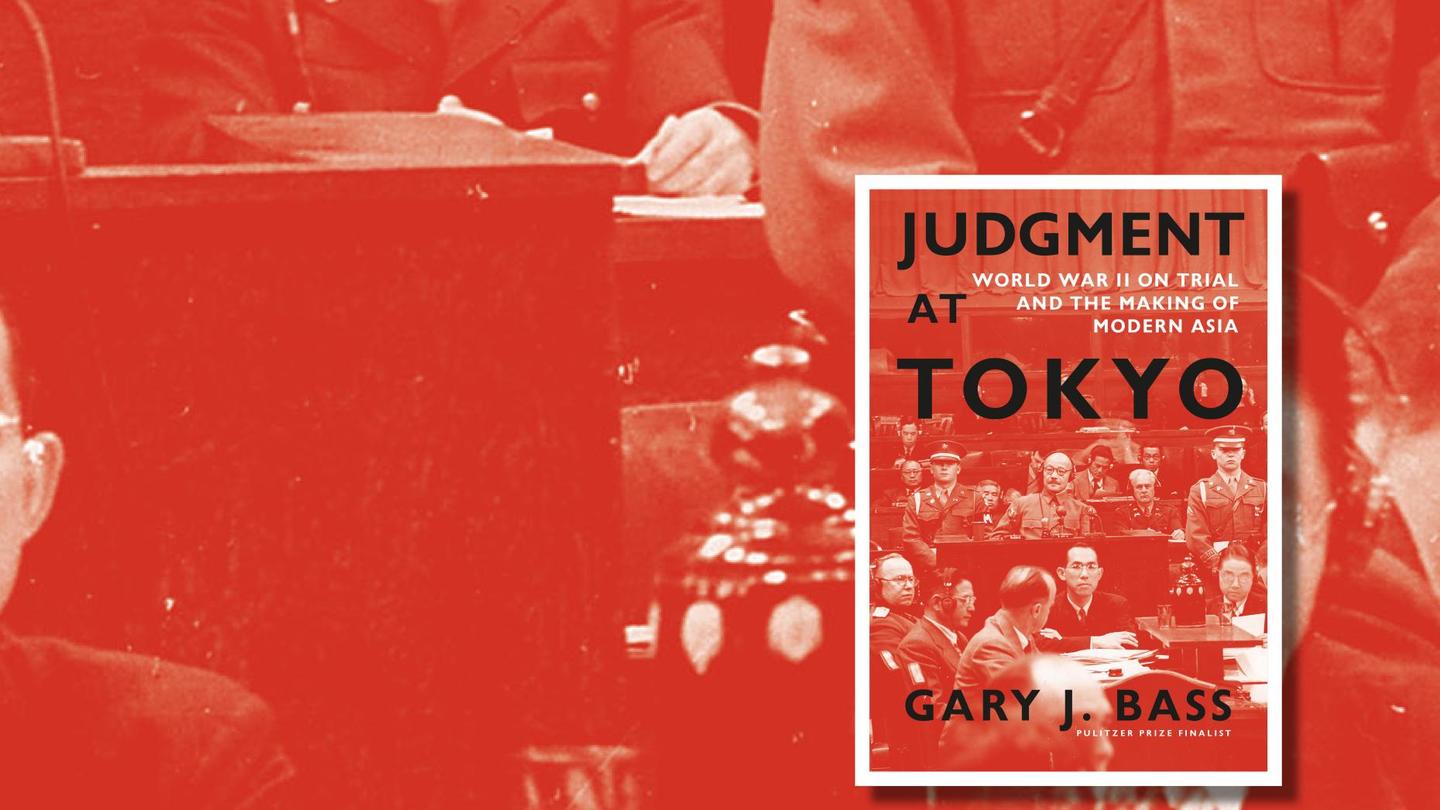SPIA Political Scientist Delivers Detailed Account of Nuremberg’s Asian Counterpart

SPIA political scientist’s sprawling, detailed history of the Nuremberg trials’ lesser-known Asian counterpart has earned glowing reviews and a spot on numerous year-end best-of lists.
Gary J. Bass’s Judgment at Tokyo: World War II on Trial and the Making of Modern Asia(Alfred A. Knopf) was named one of the 10 best books of the year by The Washington Post, one of the 12 essential nonfiction books of the year by The New Yorker, a best book of the year by The Economist, and one of the 100 notable books of the year by The New York Times, among other accolades.
In “Judgment at Tokyo,” Bass, the William P. Boswell Professor of World Politics of Peace and War, presents an exhaustive and nuanced look at the International Military Tribunal for the Far East, which heard the prosecution of 28 high-ranking Japanese military and political leaders on charges of crimes against peace, war crimes, and crimes against humanity. In addition to its coverage of the trial itself, “Judgment at Tokyo” contextualizes what was happening in Asia at the time and lays out the unanticipated regional and global complexities that it gave rise to and that continue to reverberate today — what Bass refers to as “its long shadow.”
“This book is an attempt to tell the story of the Tokyo trial in the round,” he writes in his introduction.
The book has received unanimously rave reviews. Writing in The New Yorker, Ian Buruma, a prominent Asia expert, called it “exhaustive and fascinating” and praised its study of China. In Foreign Affairs, Jennifer Lind, a leading Japan scholar at Dartmouth College, described the book as “magnificent” and “profound.” In The Washington Post, Robert Kaplan called it “comprehensive, landmark and riveting.”
Bass is a former journalist, and his book is deeply researched and reported. He pored through archives and conducted interviews in Tokyo, Hiroshima, Nagasaki, Beijing, Nanjing, Hong Kong, Taipei, Seoul, Delhi, Kolkata, London, Edinburgh, Paris, The Hague, Canberra, Washington, Norfolk, and Independence, Missouri. The book is based on many thousands of pages of documentation gathered from 18 archives in seven nations, and the trial record was almost 50,000 pages. The book took a decade to research and write.
Bass says that he wanted to call attention to Asian voices and remember their wartime suffering. “Americans and Europeans still don’t pay much attention to the billions of people in Asia, and this book is meant to encourage more understanding,” he says. He also sees “Judgment at Tokyo” as a corrective to ideological or partisan approaches to foreign policy: “This book is meant to provide complexity and nuance, to immerse readers in the history and ask them to make up their own minds, to show that these judgments are never simple.”
The trial at Tokyo began just five months after the International Military Tribunal got underway in Nuremberg, Germany. Despite their chronological proximity and procedural similarities, the two proceedings eventually were seen in far different ways. Nuremberg created a blueprint for calling to account purveyors of global atrocities, and its successor trials inspired a film that took home three Academy Awards. The Tokyo trial was a far messier affair, and came to be largely unremembered, at least in the West.
“While the Nuremberg trial has come to symbolize a grand moment of moral clarity, the Tokyo trial is engrossing precisely because it remains so controversial,” Bass writes. “Nuremberg is exalted by lawyers and human rights activists as the template for recent efforts at international justice from Bosnia to Rwanda to the permanent International Criminal Court, while Tokyo is seen as an embarrassment best forgotten. The suffering of Asians gets little attention in the United States and Western Europe. If Nuremberg stands as a metaphor for ethical purity, then Tokyo represents a dive into murk. It calls into question a triumphalist view of World War II.”
The Nuremberg trial was a prelude to decades of public introspection and atonement on the part of German leaders, the book observes, but the Tokyo prosecution did not have the same effect in Japan, where the firebombing of dozens of cities and the catastrophic bombings of Hiroshima and Nagasaki compelled many to demand why U.S. leaders were not being held similarly accountable. According to Bass, the skepticism foreshadowed many challenges the United States is currently facing.
“In Japan in particular but across Asia, there are vexing doubts about the legitimacy of almost every aspect of the trial: its inception, its functioning, its verdicts, and its legacy,” he writes. “Because it was defined by the limits of Allied power, marked Allied hypocrisy, and the uncertainty of its outcome, the story of Tokyo is a far less heroic subject than Nuremberg — one that perhaps makes a more fitting World War II history for today, a time when American power is waning, its moral influence sharply diminished, and its democracy in crisis.”
Bass’s book explores themes of racism, nationalism, and imperialism, all of which played a role in the trial — and its aftermath. Indeed, Bass observes that the Tokyo proceeding was much more than either a legal matter or a military one.
“It was a measure of Asia’s colonial past and prelude of its Cold War future,” he writes. “The forging of a new Asia required military, political, economic, and territorial arrangements, but also a moral reckoning with the war and its causes.”
The success and acclaim of “Judgment at Tokyo” have rekindled interest in Bass’s prior works — especially, in the wake of Henry Kissinger’s recent death, the Pulitzer Prize finalist “The Blood Telegram: Nixon, Kissinger, and a Forgotten Genocide.” Stories in The New York Times, The Washington Post, The New Yorker, and The Atlantic all cited the book.
